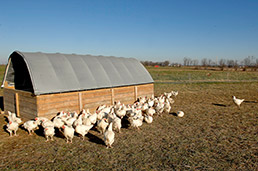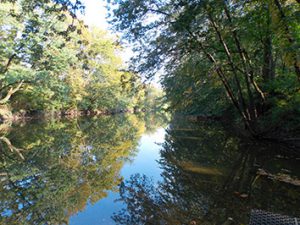
Bill that would change wetlands definition passes Indiana House committee
Democrats, environmental groups and business leaders are denouncing a bill that they say would further erode protections for Indiana’s already shrinking wetlands.

Democrats, environmental groups and business leaders are denouncing a bill that they say would further erode protections for Indiana’s already shrinking wetlands.

Sam Carpenter succeeds Jesse Kharbanda, who led the organization for more than 14 years before stepping down early this year.

The Hoosier Environmental Council is now supporting the West Indianapolis Neighborhood Congress in its fight against the wastewater treatment facility the Ben Davis Conservancy District wants to build at 900 S. Tibbs Ave.
Improving Kids’ Environment, a 20-year-old not-for-profit that works to reduce toxic risks for children, is now part of the Hoosier Environmental Council, the groups announced Thursday.

Mayor Joe Hogsett and other city leaders held a recycling forum at Garfield Park in 2016, and urged attendees to think big. But two years later, not much has changed on the recycling front.
Environmental leaders say the new rule changes for coal-fired power plants put Indiana residents particularly at risk because the state has the most coal ash ponds in the country.
The state Department of Environmental Management announced that it's considering replacing public notice ads of some permit applications with electronic postings on the agency's website.
Anderson Mayor Thomas Broderick Jr. is withholding support of the Mounds Greenway, the proposed trail along the White River between Muncie and Indianapolis.

As IPL ditches coal in favor of natural gas at power plants in Indianapolis and Martinsville, the utility wants to close their coal ash pits, cover the tops with plastic membranes, and top them off with nearly three feet of sand and soil.
Indiana Gov. Mike Pence on Thursday vetoed a bill that would have prevented or delayed state environmental officials from making stricter regulations than federal law.

The bill’s sponsors say its purpose is consumer safety. Small poultry producers contend it would hamstring their ability to compete in a marketplace dominated by large producers.
The Indiana House has approved a bill that would prevent state agencies from enacting environmental rules tougher than those imposed by the federal government.

There is a growing sentiment here among key energy leaders—even from those who oppose the EPA plan—that the state should develop its own compliance plan that focuses on realistic strategies to decrease carbon emissions and diversify its energy mix.
Senate Bill 249, if passed into law, would ban communities from adopting an ordinance preventing the construction of livestock facilities.

Economic development officials are advancing a plan to dam the White River in Anderson and create a seven-mile lake, but environmental groups are pushing the idea of a riverside trail as an alternative with equal promise but less expense and environmental destruction.
A state panel gave preliminary approval Wednesday to Indiana's first rules governing big stand-alone ponds and lagoons built to hold manure trucked in from livestock farms.
Environmental groups are proposing a system of trails to promote use of the White River in central Indiana rather than damming it for a proposed $450 million, seven-mile-long reservoir.
The Hoosier Environmental Council has added its name to the list of environmental groups opposing a proposed seven-mile long reservoir along the White River in central Indiana.
Indiana regulators would be barred from adopting environmental rules tougher than federal standards under a bill that's advancing in the General Assembly that has drawn criticism that it would hamper efforts to protect the state's environment and public health.
The Hoosier Environmental Council has targeted food safety, animal rights and the environmental impact the corporate livestock industry has in Indiana.